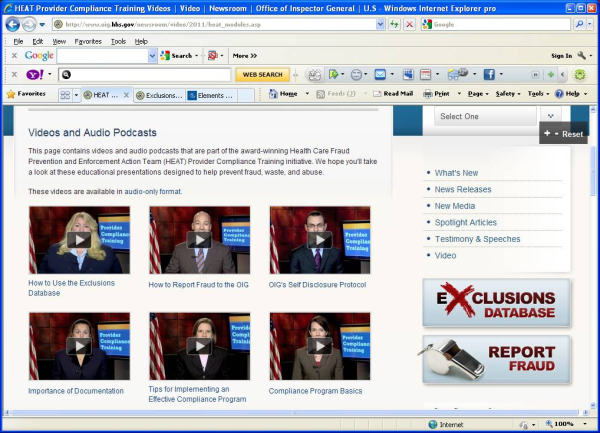By Ralph Sitler III, JD--As all medical providers know, an extensive knowledge of HIPAA and its various regulations is key to a successful and compliant practice. Maintaining confidentiality of your patients and their health information should always be foremost in your thoughts when you are running your practice. However, some areas of HIPAA can prove to be confusing. One of these areas concerns the confidentiality provisions for minors and the ability of their parents to access their protected health information. This article will give an overview of applicable provisions to help clarify this topic and help keep your practice compliant.
Medical Billing Blog
Physicians Beware: Minors Have Special Rights for HIPAA Compliance
Tips For Use Of Modifier 58 and Modifier 78 In Medical Billing
By Christine Moore, CPC, CGSC--Even though Modifier 58 and Modifier 78 have similar meaning and wording, there are a few tips that will help in choosing the correct global period modifier when billing claims.
Volunteering For A Pay Cut? A Billing Service Can Get You A Raise!
It seems that no one would volunteer for a pay cut, but some providers are doing just that. Physicians are fighting hard to repeal the government’s 27% SGR reduction, but many in private practice are voluntarily accepting pay cuts anyway. How can this be? The AMA states that many private practices using in-house billers leave an estimated 10%-15% of the practice’s revenue uncollected--either through a lack of billing education or unmotivated employees. And the amount of money that goes uncollected can be staggering.
Medical Billing of New Acne Procedure 17340 Denied By BCBSMI
By Sherry Sparham, CPC-D--Sometimes, there are wrinkles in the way payers process claims for medical billing of new procedures. For instance, in the May, 2011, BCBS Record, there is notice of a New Procedure to Bill For Cryotherapy performed in the office. The new procedure code is 17340. Some of you may remember this procedure was used a while back to bill Medicare for cryotherapy of acne. At present, Medicare no longer covers this procedure, but BCBSMI does cover this code effective 08/01/2011. BCBSMI is still paying for procedure 10040, as well, but there are changes to descriptions for each procedure.
Compliance plans are useful and serve a purpose. The primary reason you need a compliance plan is to prevent mistakes from happening. It’s nothing more than guidelines for your staff to follow to ensure that everyone abides by existing laws and regulations. Aside from the fact that current guidelines require all providers to have a compliance plan, the self monitoring instigated by having a compliance plan helps prevent errors—and that can help prevent government audits. And we want to prevent government audits because they are usually time consuming and expensive.
On Friday, February 17, 2012, the House and Senate both passed this measure to freeze current Medicare Physician Pay Rates through the beginning of 2013, avoiding a 27.4% pay cut that was slated to hit providers on March 1, 2012. Nonetheless, pay rates may still be cut as much as 32% at the beginning of 2013. Medical Billing Resources will continue to monitor the issue and will post about any further important developments.
At my last EMR conference, there were well over 600 EMR’s on the market. Some were certified but even more were not. From the latest research according to Mark Anderson from the AC Group, less than 12% of the physicians are using their EMR programs as they were promised or intended. A recent survey indicated that 38% of physicians where unhappy with their EMR’s, and many were seeking to get out of their contracts. Since 2008, more than 5,000 practices have decided to replace or drop their EMR vendors. Many have paid upwards of $40,000 per provider for their EMR products only to find out that the product was oversold, did not meet the practice needs, or found that the vendor went out of business shortly after the implementation.
Medical Coding for Deep Vein Thrombosis Bursts Under ICD-10
Currently, under ICD-9, a 453.42 code is for acute venous embolism and thrombosis of deep vessels of distal lower extremity. Included under this code is a diagnosis involving a thrombosis or embolism to the calf, lower leg NOS, or the peroneal or tibial veins. All possible combinations are included under this one code.
RACs, MACs, and ZPICs, Oh My! Who's Watching Healthcare Providers' Medical Billing?
With an estimated $60 Billion wasted in Medicare fraud annually, our government has enacted various laws in an effort to reduce healthcare fraud. They are going after healthcare fraud in a major way as part of the effort to balance the national budget, and there are a few new programs that are making a significant difference in healthcare reimbursements. They are RACs, MACs, ZPICs and Strike Forces.
Why Providers Need Certified Professional Coders
In any medical practice or clinic, the objective is to provide the best care possible and be reimbursed at the highest possible rate. The former is in the hands of the provider—usually the clinic or practice owner—who has a vested interest in making sure that “best care possible” proposition is carried out. He has direct control and authority over the level of care patients receive, and can easily make adjustments when circumstances warrant. He is comfortable with his level of knowledge and education, knows his limitations, and brings in consultants when necessary to compensate for any lapse in quality he may feel would detract from the care scenario his patients receive. We all know this is a full time job—and then some. So what about the latter—being reimbursed at the highest possible rate? Usually the physician has some knowledge of coding requirements that comes through osmosis from filling out encounter slips for the patients he sees, but there is hardly enough time in the day for a physician to double check every code on every chart processed by his billers and coders. He is justified in expecting that the biller or coder will exhibit the highest commitment to excellence in knowledge, professional standards, compliance and ethics, even though the biller or coder does not have the ownership interest in the practice that the provider has.





















